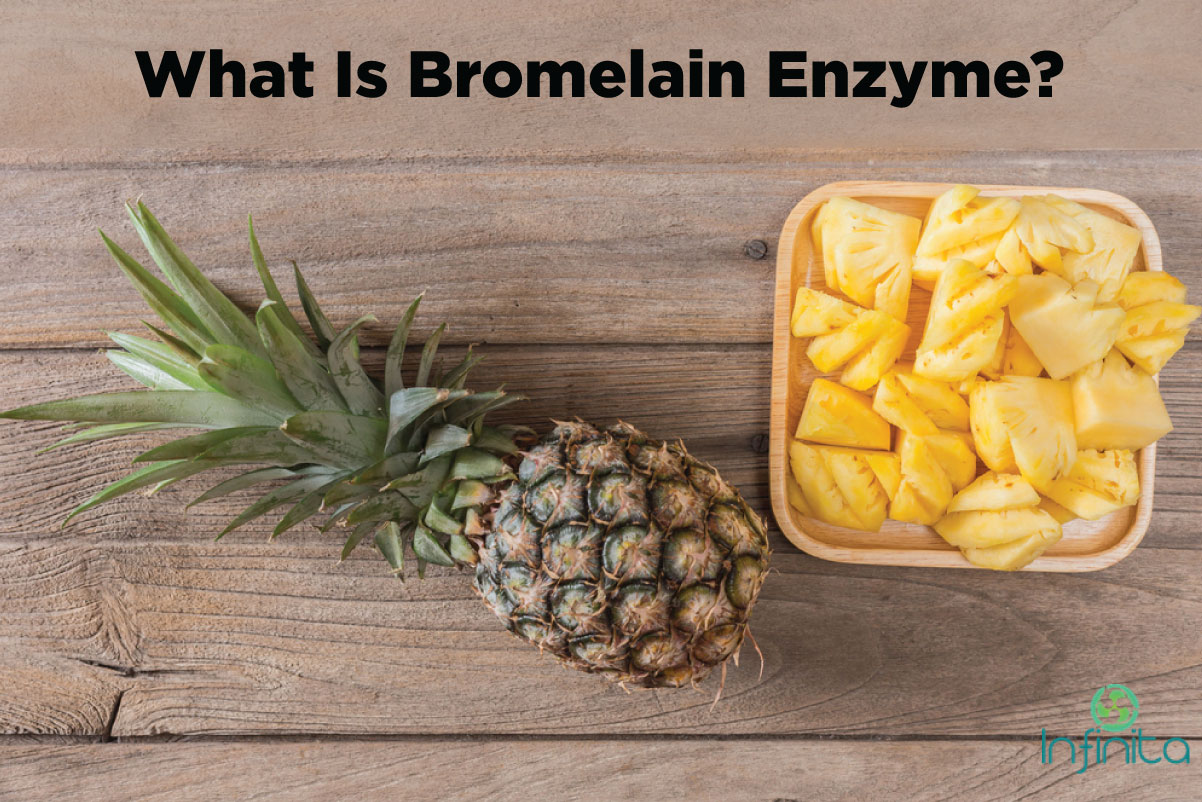Inflammation and gout flare-ups can be incredibly challenging for individuals who suffer from gout, a form of arthritis. Finding natural remedies that can help reduce inflammation and manage the symptoms of gout is of great interest. One such remedy that has gained attention is pineapple and its enzyme, bromelain. In this article, we will explore five helpful pieces of information about the impact of pineapple and bromelain in reducing inflammation and managing gout flare-ups.
1, Bromelain and its anti-inflammatory properties.
Bromelain is indeed a mixture of enzymes found in pineapples, with higher concentrations in the stem. It has been studied for its potential anti-inflammatory properties and has shown promise in managing various inflammatory conditions.
Bromelain is known to inhibit the production and activity of certain inflammatory molecules, such as cytokines and prostaglandins, which are involved in the inflammatory response. By reducing the levels of these inflammatory markers, bromelain may help alleviate inflammation and associated symptoms, including pain and swelling.
Gout, a form of arthritis, is characterized by recurrent flare-ups of joint inflammation, usually affecting the big toe. These flare-ups are often caused by the deposition of uric acid crystals in the joints, triggering an inflammatory response. Bromelain's anti-inflammatory properties may help reduce the severity and duration of gout flare-ups by modulating the inflammatory processes involved.
It's important to note that while bromelain has shown promising anti-inflammatory effects in some studies, more research is needed to fully understand its mechanisms of action and establish its effectiveness in managing specific conditions like gout. If you're considering using bromelain for gout or any other health condition, it's advisable to consult with a healthcare professional to determine the appropriate dosage and discuss potential interactions or side effects.
2, Pineapple as a source of bromelain.
Pineapple is indeed a natural source of bromelain. Consuming fresh pineapple can provide you with some amount of bromelain due to the presence of this enzyme in the fruit, particularly in higher concentrations in the stem.
However, it's important to note that the levels of bromelain can vary in different pineapple varieties, ripeness stages, and even in different parts of the fruit. Bromelain content tends to be higher in the stem and core of the pineapple compared to the flesh. Additionally, the processing methods used in commercial pineapple products, such as canning or juicing, can affect the bromelain content as well.
While fresh pineapple can contribute to your overall bromelain intake, the concentration of bromelain in pineapple may not be high enough to produce significant therapeutic effects on its own, especially for targeted anti-inflammatory benefits. In some cases, bromelain supplements, which are specifically formulated to provide higher concentrations of the enzyme, may be used for therapeutic purposes.
It's worth noting that bromelain supplements should be used with caution and under the guidance of a healthcare professional. They can have varying strengths and may interact with certain medications or cause side effects in some individuals. If you're considering using bromelain for its potential health benefits, it's always best to consult with a healthcare professional to ensure safe and appropriate use.
3, Potential benefits for gout sufferers.
Gout is a type of arthritis that involves inflammation and pain in the joints, typically caused by the buildup of uric acid crystals. Bromelain's potential anti-inflammatory properties have led to studies investigating its effects on gout and its associated symptoms.
Reducing inflammation is a key component in managing gout, as it helps alleviate the pain, swelling, and discomfort associated with gout flare-ups. Bromelain has been suggested to have anti-inflammatory effects that may be beneficial for gout sufferers.
By inhibiting certain inflammatory markers, such as cytokines and prostaglandins, bromelain may help reduce the inflammatory response triggered by the deposition of uric acid crystals in the joints. This, in turn, could potentially alleviate symptoms like joint pain and swelling experienced during gout attacks.
However, it's important to note that while bromelain has shown promise in some studies for managing inflammation and associated symptoms, more research is needed to establish its effectiveness specifically for gout. Each individual's response to treatment can vary, and bromelain might not have the same impact on everyone.
If you're considering using bromelain for gout or any other health condition, it's always advisable to consult with a healthcare professional. They can provide personalized guidance, consider potential interactions or side effects, and help you determine the most appropriate treatment approach for your specific situation.
4, Complementary role with other treatments.
While pineapple and bromelain may offer some anti-inflammatory benefits, they should not be viewed as a replacement for conventional medical treatments for gout. Gout is a complex condition that typically requires a comprehensive treatment approach.
A holistic management plan for gout often includes a combination of medications, dietary modifications, lifestyle changes, and other interventions. Medications prescribed by healthcare professionals, such as nonsteroidal anti-inflammatory drugs (NSAIDs), colchicine, or corticosteroids, are commonly used to manage gout flare-ups and reduce inflammation.
Dietary modifications, such as reducing the intake of purine-rich foods (which can increase uric acid levels), staying hydrated, and maintaining a healthy weight, are important components of gout management. Lifestyle changes, including regular exercise, limiting alcohol consumption, and avoiding triggers like certain medications or stress, can also contribute to gout control.
Pineapple and bromelain can be incorporated into this holistic approach as complementary elements. Consuming fresh pineapple or considering bromelain supplements may provide additional support in managing inflammation associated with gout, but they should not replace or be relied upon as the primary treatment.
It's crucial to consult with a healthcare professional, such as a rheumatologist or primary care physician, to develop an individualized treatment plan that takes into account your specific needs, medical history, and any potential interactions with other medications you may be taking. They can provide guidance on the appropriate use of pineapple, bromelain, and other complementary strategies as part of an overall gout management plan.
5, Other potential health benefits.
Bromelain and pineapple offer several potential health benefits beyond their role in managing gout flare-ups. Here are some additional areas where bromelain and pineapple have been studied:
Digestive Health: Bromelain is known for its ability to break down proteins, which may aid in digestion. It can help enhance the digestion and absorption of nutrients, particularly protein-rich foods. Some studies suggest that bromelain may have a positive impact on digestive disorders, such as inflammatory bowel disease (IBD) and irritable bowel syndrome (IBS).
Respiratory Health: Bromelain has been investigated for its potential effects on respiratory conditions, including sinusitis, bronchitis, and asthma. It may help reduce mucus production and thin respiratory secretions, making it easier to clear the airways. Additionally, its anti-inflammatory properties may help alleviate inflammation in the respiratory system.
Immune Support: Pineapple, being a good source of vitamin C, can contribute to immune health. Vitamin C is an essential nutrient that plays a crucial role in supporting the immune system's function and protecting against oxidative stress. Including pineapple in your diet can help ensure an adequate intake of vitamin C, which is important for overall immune support.
Nutrient Content: Pineapple is a nutrient-rich fruit that provides various essential vitamins and minerals. It contains significant amounts of vitamin C, manganese, and dietary fiber. Vitamin C is an antioxidant that supports immune function and collagen synthesis. Manganese is important for metabolism, bone health, and antioxidant defense. Dietary fiber aids in digestion and helps maintain a healthy digestive system.
While bromelain and pineapple offer these potential health benefits, it's important to note that individual responses may vary. It's always advisable to consume them as part of a balanced diet and to consult with a healthcare professional if you have specific health concerns or conditions.
Remember that bromelain supplements, if used, should be taken with caution and under the guidance of a healthcare professional, as they may have varying strengths and potential interactions with certain medications.
In conclusion, pineapple and bromelain offer potential benefits for individuals seeking to reduce inflammation and manage gout flare-ups. Bromelain's anti-inflammatory properties may help alleviate the symptoms associated with gout, such as joint pain and swelling. Pineapple, as a natural source of bromelain, can be incorporated into a well-balanced diet to provide additional nutrients and potentially contribute to a holistic approach in managing gout. However, it's important to note that pineapple and bromelain should not replace conventional medical treatments for gout, and consulting with a healthcare professional is essential to develop an individualized treatment plan. By understanding the potential benefits and limitations of pineapple and bromelain, individuals can make informed decisions about their dietary choices and overall management of gout.
:max_bytes(150000):strip_icc()/best-anti-inflammatory-medication-2548734-c7ad2c0e99d8424b95ce54ef0cb1a041.png)


:max_bytes(150000):strip_icc()/alternative-therapies-types-and-uses-5207962_final-406a673fa76e41d9add8ce4771222dd0.png)

Comments
Post a Comment